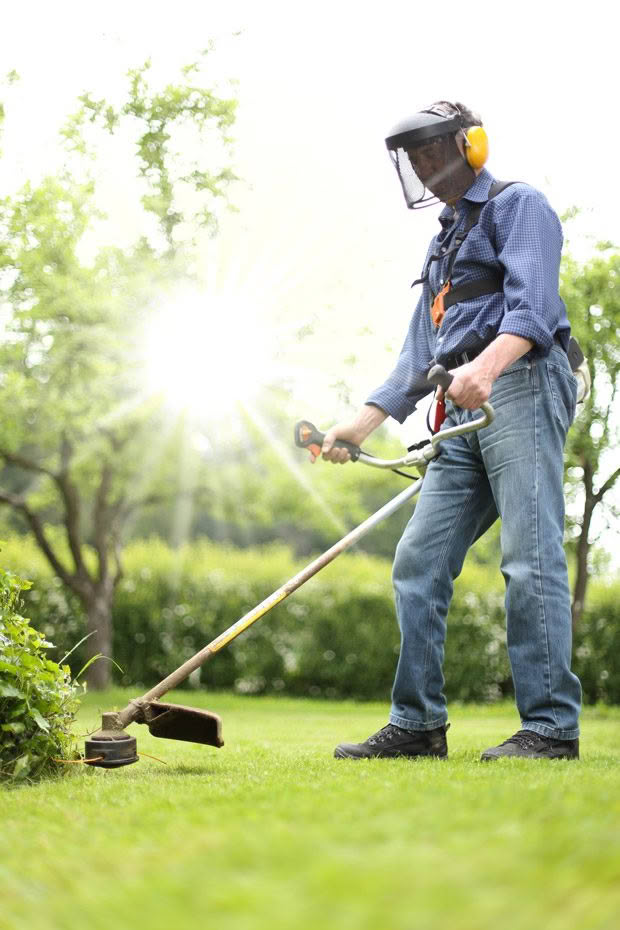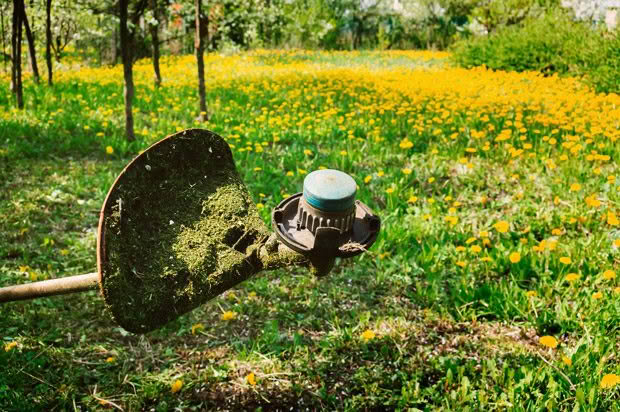7 tips for cutting back spring with a brushcutter

If you’ve got out-of-control weeds or long, tough grass, a brushcutter is a great tool for tidying.
Words: Nadene Hall
1. Make sure your supporting harness is properly fitted. Set it up with the fuel tank half-full. Adjust it until the blade gently touches the ground when you let go of the cutter’s handle – you’ve got it right when you barely feel the weight of the machine on your arms. Your elbows should have a slight bend, and your wrists should be straight.
2. Watch for people standing too close to you while you’re working. All models have a specified safety distance, usually around 10-15m.
3. To start it, flick the switch, open up the choke, and press the fuel primer a few times (if your model has one). Lay it against a solid surface with the blade away from surrounding objects. Hold the machine steady with one hand – not your foot – and grab the starter handle with the other.

Pull it slowly until you feel a slight resistance, and then yank it hard and quickly. When the engine starts, remember to reset the choke control.
4. Blades spin anti-clockwise, so it’s most efficient to move the cutter from right to left, so trimmings fall on the area you’ve just cut.
5. If you’re cutting long, thick grass or weeds, make two passes, one to the right to cut the lanky tops, the second lower and to the left to cut the stiffer stalks, to avoid clogging the machine.
6. If you’re cutting grass on a slope, start at the bottom, walk across it cutting a strip, then repeat as you work your way up to the top.
7. Sharpen the blades every time you refuel. If you’re unsure how to do this, get a professional to do it as it’s crucial to get the cutting angle correct.
SAFETY FIRST
Always wear good quality safety glasses. Features include:
– anti-scratch and anti-fog
– 100% UV lenses
– wrap-around design to stop debris coming in the sides
– thin temples so it’s comfortable when wearing earmuffs
Tip: if you wear eyeglasses, look for ones called ‘over the glass’ or ‘over-glass’ safety glasses.
MORE HERE
Love this story? Subscribe now!
 This article first appeared in NZ Lifestyle Block Magazine.
This article first appeared in NZ Lifestyle Block Magazine.
